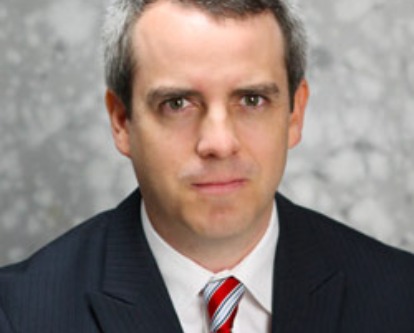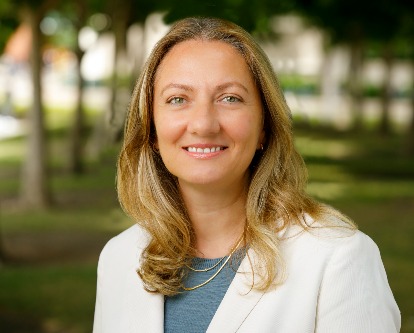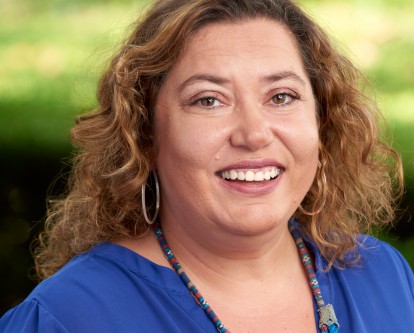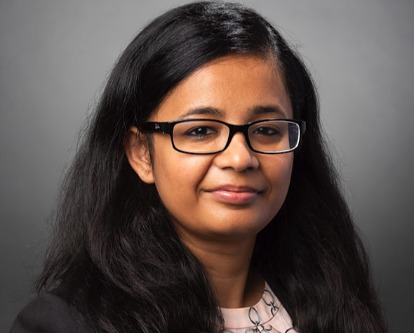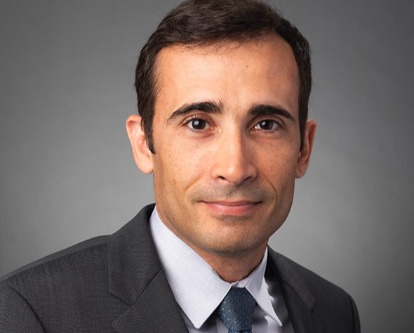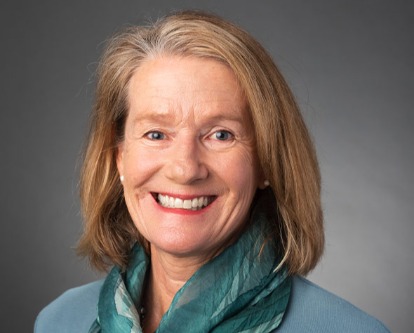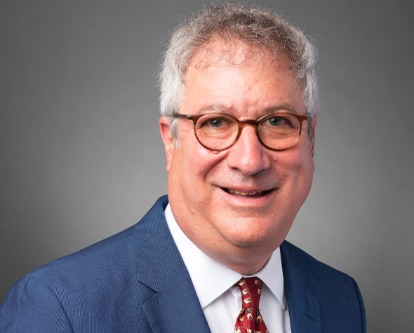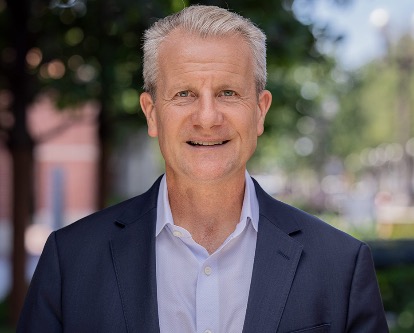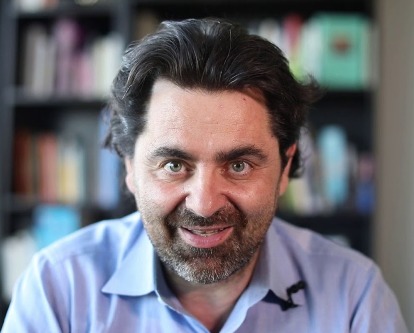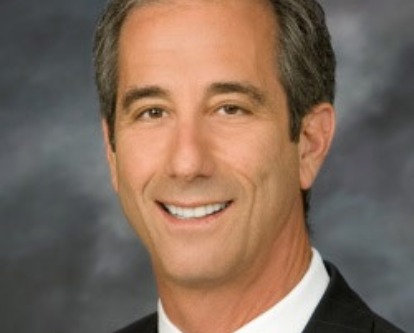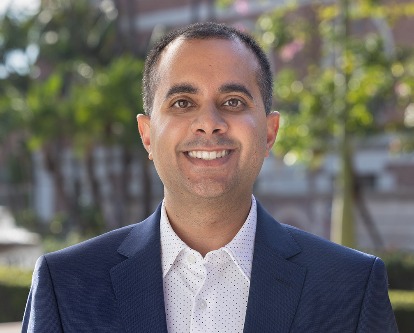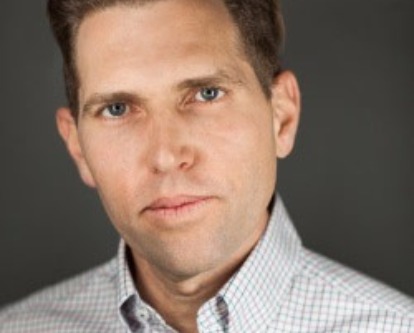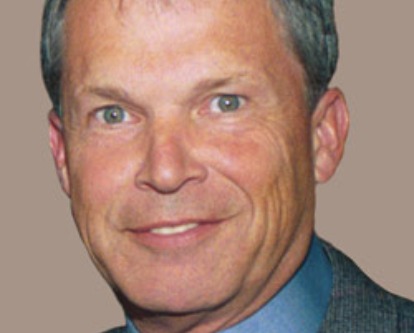
Faculty: Finance and Business Economics
Finance and Business Economics: Faculty and Research
Faculty and students in the Finance and Business Economics Department examine economic decision-making and the role of markets in the allocation of real and financial resources. A student or researcher in finance and economics studies both the normative (what should one do) and the positive (what do we actually do), with the goals of understanding and improving the circumstances of both society and the individual.
Finance and economics are extremely broad fields and include both the theoretical and the practical. Our faculty researches topics ranging from boom and bust economic cycles, gender representation in business, the impact of social connections on markets, parenting, venture capital, racial discrimination, shadow banking, high frequency trading, and pollution.
We invite you to explore our talented and multi-faceted faculty and to see how the perspectives gained from economic and financial analysis extend across all aspects of society.
— Christopher Jones, Department Chair and Professor of Finance and Business Economics

Full-Time Faculty
-
Scott Abrams
- Academic Director for the Full-Time MBA Program
- Professor of Clinical Finance and Business Economics
Scott Abrams is a Professor of Clinical Finance and Business Economics at the USC Marshall School of Business. He specializes in corporate finance, financial analysis and valuation, and portfolio management. Professor Abrams teaches these subjects in the MBA, MS Finance, and Undergraduate Programs. He is a two-time winner of the Golden Apple Teaching Award for the Full-Time MBA Core Program (2016 and 2021), a winner of the Golden Apple Teaching Award for Undergraduate Electives (2023), and winner of the Golden Apple Teaching Award for Graduate Electives (2024). He has been recognized with other awards including the Evan C. Thompson Teaching & Learning Innovation Award (2024). In addition, he serves as the Academic Director for the Full-Time MBA Program.
-
Kenneth R. Ahern
- Associate Professor of Finance and Business Economics
Kenneth Ahern is an Associate Professor at the Marshall School of Business and a Faculty Research Fellow at the National Bureau of Economic Research (NBER). His research is distinguished by the study of networks to study how economic outcomes spread from one agent to another through interactions, including interactions among industries, individuals, and information sharing. His research has been published in leading finance and economics journals including the Quarterly Journal of Economics, Journal of Finance, Journal of Financial Economics, and Review of Economics and Statistics, and has been cited in both the popular press and legislative hearings around the world. Before joining USC, Kenneth was on the faculty of the Ross School of Business at the University of Michigan.
-
Rahsan Akbulut
- Vice Dean of MS Programs
- Clinical Professor in the Department of Finance and Business Economics
Rahsan Akbulut is a Professor of Clinical Finance & Business Economics. She is also serving as the Associate Dean for Specialized Masters Programs. She previously served as Academic Director of the MBA for Professionals and Mangers as well as the MS Finance Programs. Her teaching focuses on Microeconomics. She is also a recipient of the Golden Apple Teaching Award. Professor Akbulut's research interests include macroeconomics, labor economics, and household and family economics. Prior tore-joining USC, she was a visiting Assistant Professor at Pomona College for 3years. Before her academic career began, Professor Akbulut worked as a financial controller at Daimler AG. in Istanbul, Turkiye.
-
Ayca Altintig
- Associate Professor of Clinical Finance
-
Neha Bairoliya
- Assistant Professor of Finance and Business Economics
-
Duke Bristow
- Associate Professor of Clinical Finance and Business Economics
Duke Bristow is an expert on corporate finance and corporate governance, particularly in the areas of private equity and director education. He has published papers in economics, engineering, and law journals, and has advised organizations on matters involving corporate governance and director education since 1998. His research and teaching has received support from the National Institutes of Health, the NASDAQ, the four largest international audit firms, and a dozen national law firms. Professor Bristow has served as a director, officer or executive in public, private and not-for-profit organizations.
-
Tyrone W. Callahan
- Assistant Chair for the Department of Finance and Business Economics
- Professor of Clinical Finance and Business Economics
Ty Callahan is a finance scholar with interests that include the behavior of traders, market liquidity and volume, and mergers and acquisition. He has published papers in the Review of Futures Markets and the Journal of Physical Chemistry. Professor Callahan has served as an ad-hoc referee for the Journal of Finance, Journal of Financial Markets, Journal of Empirical Finance, and International Review of Finance. Before joining USC, he was on the faculty of the University of Texas at Austin.
-
Odilon Câmara
- Associate Professor of Finance and Business Economics
Odilon Câmara is an economist who specializes in microeconomics and political economy. He studies how individuals strategically use information to persuade decision makers. He also studies the extent to which voters can use re-elections to create political accountability and discipline elected officials. His research has been published in American Economic Review, Review of Economic Studies, Management Science, Journal of Economic Theory, Journal of Politics, and Games and Economic Behavior. Before receiving his PhD, Professor Camara worked in the banking industry.
Courtesy + Joint Appointments
-
Patricia Dechow
- Robert R. Dockson Professor of Business Administration
- Professor of Accounting, Finance and Business Economics
Professor Dechow's research focuses on accounting accruals, the quality and reliability of earnings, the use of earnings information in predicting stock returns, and the effect of analysts' forecasts on investors’ perceptions of firm value.
-
Richard Kent Green
- Professor of Policy, Planning, and Development
- Professor of Finance and Business Economics
Richard Green is an expert on housing markets, housing policy, mortgage finance, and urban growth. His research has been published in a wide array of scholarly journals and popular media outlets, and he recently served as president of the American Real Estate and Urban Economics Association. Professor Green is director of the USC Lusk Center for Real Estate. Before joining USC, he was a faculty member at George Washington University and the University of Wisconsin, and he served as principal economist and director of financial strategy and policy analysis at Freddie Mac.
-
Richard Sloan
- Associate Dean of Research
- Deloitte and Touche LLP Chair in Accounting
- Professor of Accounting, Finance and Business Economics
Richard Sloan is a professor of accounting, finance and business economics at the University of Southern California. He has also served on the faculties of UC Berkeley’s Haas School of Business, University of Michigan’s Ross School of Business and University of Pennsylvania’s Wharton School. While at the University of Michigan, Professor Sloan was the founding director of the John R. and Georgene M. Tozzi Electronic Business and Finance Center. From 2006 to 2009, Sloan was a managing director in equity research at Barclays Global Investors. Professor Sloan’s research focuses on the role of accounting information in investment decisions.
-
Romain Ranciere
- Professor of Economics
- Professor of Finance and Business Economics
Romain Ranciere is a Professor of Economics at USC Dornsife with a joint-appointment as Professor of Finance and Business Economics at USC Marshall.
Part-Time + Adjunct Faculty
-
John Ayoob
- Adjunct Professor of Finance and Business Economics
John Ayoob is currently serving as an Adjunct Professor of Finance and Business Economics in the Marshall School at the University of Southern California. He is a 37 year veteran of the commercial real estate industry in Southern California, currently as Executive Vice President at CBRE. John specializes in consulting on the development, leasing, and sale of institutional office, R&D, and mixed-use properties in greater Los Angeles.
-
Sean Banchik
- Adjunct Professor of Finance and Business Economics
-
Nikhil Bhatia
- Adjunct Professor of Finance and Business Economics
-
Eric Briggs
- Adjunct Professor of Finance and Business Economics
Emeriti Faculty
-
Guilford Babcock
- Professor Emeritus of Finance and Business Economics
-
Robert Joseph Bridges
- Associate Professor Emeritus of Clinical Finance and Business Economics
Robert Bridges specializes in real estate feasibility and urban economics. As a consultant, his clients include investment and development firms, and international and domestic investors. His editorials have been published in the Wall Street Journal, and has been cited by the Los Angeles Times and National Public Radio, among other outlets. Professor Bridges received USC's Steven Sample Award for Teaching and Marshall's Award for Community. He is a licensed architect who has received awards from the LA Business Council, the Ray Watt Foundation, the Concrete Reinforcing Steel Institute and the American Institute of Architects.
-
Tim S Campbell
- Professor Emeritus of Finance and Business Economics
Tim Campbell is an expert on financial intermediation. His research has been published in numerous leading journals including the Journal of Finance, Quarterly Journal of Economics, Journal of Financial and Quantitative Analysis, and Journal of Financial Intermediation. He served as associate editor of the Journal of Finance, Journal of Financial Research, and Journal of Real Estate Finance and Economics. He has been Academic Director of Marshall's highly ranked Executive MBA program since 2003, and previously served as Marshall's Deputy Dean for Programs and Planning.
-
Henry R. Cheeseman
- Professor Emeritus of Clinical Finance and Business Economics
Henry Cheeseman is an expert of business law, securities law, bankruptcy law, and intellectual property. He has published over twenty books, including Business Law, Contemporary Business and Online Commerce Law, and The Legal Environment of Business and E-Commerce. Professor Cheeseman has received a number of prestigious teaching awards including three Golden Apple Awards and the teaching award from the Mortar Board National Honor Society. He is co-director of the Minor in Business Law program. Before joining USC, Cheeseman practiced law and represented clients in the formation and acquisition of savings banks.
RESEARCH + PUBLICATIONS
RESEARCH + PUBLICATIONS
-
AbstractAuthor[s]
- Sunghan Ryu
- Shantanu Dutta
- Baizhu Chen
PublicationNew Media and SocietyPublication Date06.01.2022 -
Abstract
This paper studies how banks compete amid digital disruption and the resulting distributional effect across consumers. Digital disruption increases the geographic coverage of banking services, bringing new entrants to local markets. However, as digital customers shift from branches to digital services, banks close branches, and the remaining branching banks gain market power among non-digital customers that rely on branches. Consequently, digital customers benefit from the intensified bank competition at the cost of non-digital customers who pay higher prices for branch services and face the risk of financial exclusion. We provide empirical evidence by exploiting the staggered expansion of 3G networks, instrumented by regional distribution of lightning strike frequency. Using a structural model, we further quantitatively decompose the benefit and costs of digital disruption resulting from banks' pricing, branching, and entry decisions. The results highlight the role of banks' endogenous responses to digital disruption in widening the gap in access to banking services.
Author[s]- Erica Xuewei Jiang
- Gloria Yu
- Jinyuan Zhang
Publication Date01.01.2022 -
Abstract
We use new hand-collected data from corporate filings to study the drivers of corporate capital structure adjustment. Classifying firms by their adjustment frequencies, we reveal previously unknown patterns in their reasons for financing and financial instruments used. Some are consistent with existing theory, while others are understudied. Many leverage changes are outside of the firm's control (e.g., executive option exercise) or incur negligible adjustment costs (e.g., credit line usage). This implies a lower frequency of proactive leverage adjustments than indicated by prior research using accounting data, suggesting that costs of adjustment are higher, or the benefits lower, than previously thought.
Author[s]- Arthur Korteweg
- Michael Schwert
- Ilya Strebulaev
PublicationJournal of Financial and Quantitative Analysis, 57(1), 31-66Publication Date01.01.2022
FACULTY POSITIONS
FACULTY POSITIONS
See openings and apply HERE.

